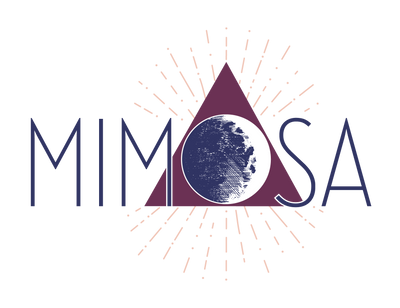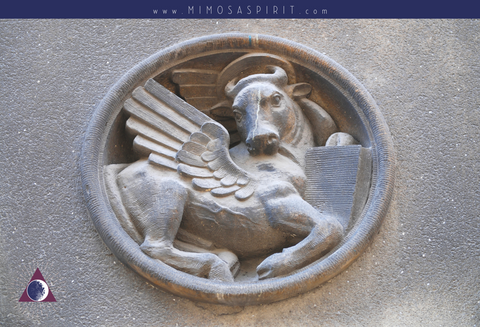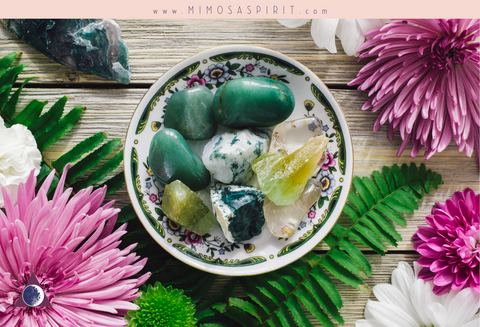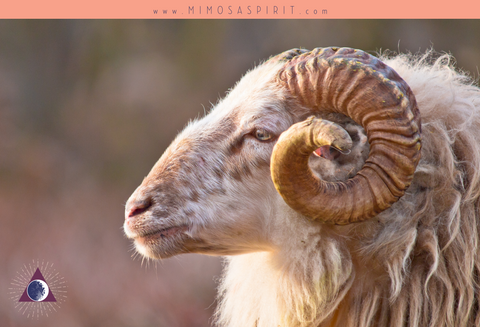
The History of Black Spirituality
By Payton Udo
As Black authors, educators, and activists strive to continue educating people of all races about Black culture, we must remind non-Black people to please not appropriate any practices that are shared within this article, or other facets of Black and/or African culture.
Introduction
Black history month is vital for bringing awareness to the contributions that Black people have provided society; to highlight those who accomplished great feats in a time when they would not be celebrated. For thousands of years, Black accomplishments, knowledge, and beliefs were dismissed so that they would not compete with the “white man’s story," and now, we work hard to level the playing field, and educate on what has been silenced or forgotten.
While universal knowledge of Black history is lacking, knowledge of Black spirituality has also failed to be part of common knowledge. Due to the fact that we do not have tangible records of traditional African beliefs, and the effects of colonization, which sprouted Evangelism in African countries, a lot of knowledge about traditional African spirituality has been lost or forgotten. This article aims to bring awareness to the roots of Black spirituality through discussing what we know about traditional indigenous beliefs, past societies who have left us clues, and how slavery impacted the current affairs of Black spirituality.
Traditional African Spirituality
The reason we do not have an ample amount of knowledge about traditional African spirituality is because most of its knowledge has been passed down orally, or by word of mouth. There are no handwritten books about the matter, or relics that have been left behind to study. With so many specific tribal dialects throughout the continent, there is a range for different beliefs and practices between tribes, making it hard to generalize traditional African Spirituality.
Although there are several differences between tribes, Africa’s indegenous spirituality does share some commonalities. Overall, the worldview for African spirituality is “truly holistic”, according to Jacob Olupona, a professor of indigenous African religions at Harvard Divinity school. “For example, sickness in the indigenous African worldview is not only an imbalance of the body, but also an imbalance in one’s social life, which can be linked to a breakdown in one’s kinship and family relations or even to one’s relationship with one’s ancestors.” Throughout the continent, ancestors play an important role in African cosmology, but other spirits and deities may also take part, varying from tribe to tribe (Chiorazzi).

Crystals Used in Traditional Tribal Spirituality
As indigenous tribes from all over the world have been drawn to using tools of nature for spiritual purposes, tribes in Africa are no different. Some crystals used in western Africa include gold, which was used as an adornment for rites of passage and bridal ceremonies in the Ivory coast and further south. In Nigeria, red and pink coral beads are commonly used by women for the ability to stimulate blood flow and assist in healthy fertility, while in Mali, amber (shown above) and copal jewelry was worn to invoke pride, strength, and positive character (Leavy). It is vital to remember that the majority of popular crystals that we know today are formed abundantly in African countries. Fluorite, Rose Quartz, Ruby, Topaz, Malachite, Azurite, Rhodonite, Aquamarine, and Citrine can be found in Madagascar, Namibia, and other southern African countries (The AfroMystic).
To purchase healing crystals from a Black-owned crystal shop, please check out Chakra Zulu Crystals, the Melanin Mystic Shop, or Little Crystal Galaxy.

Ancient Egypt
Ancient Egypt is probably the most well renowned Ancient African civilization. With the remains of astounding pyramids and countless hieroglyphs, the Egyptians have left us plenty to study about their culture and beliefs. Some Egyptian knowledge that is widely referred to in New Age spirituality today includes the use of sacred geometry and astrology. Although it is not the same astrological signs that we are familiar with today, an Egyptian zodiac does exist! This civilization studied the stars to advance their agriculture, as well as tied many deities to the sun and the stars, like Isis or Ra.
Crystals Used in Ancient Egypt
The utilization of crystals in ancient Egypt is commonly glanced over, even though the Egyptians were not shy with their spiritual use of crystals. Crystals were embedded into spiritual tools and amulets. Records show Egyptians using Lapis lazuli for its healing properties, stating it can “draw disease out of the body through the stones, into the air or water” (Leavy). Cleopatra lined her palace with the precious stones, and even crushed lapis to use as eye makeup-- believed to promote psychic vision and clarity. Other crystals used by ancient Egyptians include Carnelian, frequently used by their soldiers and in elixirs to heal the body (The AfroMystic). Malachite was also used as a protective amulet, or for pigment and paint for temples and statues (Leavy).

Slavery and Spirituality
Slavery had a great impact on Black spirituality, as many tribal traditions and religions were dispersed throughout the world. This dispersion of African people during the transantlatic slave trade is referred to as the “African Diaspora.” The mixing of cultures produced room for altered worldviews and religions, thus, African Diaspora religions were born. African Diaspora religions include practices like Santeria, an Afro-Cuban folk religion developed from the beliefs and customs of the Yoruba people, while incorporating some elements of the Catholic religion. Hatian Vodou is also a mix of traditional Western African religions and Christianity. According to Olupona, “African spirituality has always been able to adapt to change and allow itself to absorb the wisdom and views of other religions,” using other faiths to complement their spiritual practice in order to get tangible results (Chiorazzi).
The Yoruba, a tribe on the west coast of Africa, were able to hold on to their religion and mask their beliefs behind Catholicism, as the deities they worshiped, Orishas, could be hidden behind the names of Catholic Archangels. Even with these strategies to hold on to their beliefs, it is important to remember the amount of culture and tradition lost due to slavery and Evangelism. Just as enslaved people were killed or punished for trying to learn how to read, practicing their own religion was frowned upon by slave owners as well, and could have serious consequences.
Crystal Use During Slavery
In a recent excavation of Charles Carroll’s home, a signer of the Declaration of Independence and Maryland State Senator, slave quarters were discovered on the ground floor with items thought to have been used by enslaved people related to African divination and conjuring practices. The items found included several crystals, a piece of an ivory ring, and a bubble shell native to Florida or the West Indies (Jones).
Other excavations of slave quarters show similar findings. In Thomas Jefferson’s slave quarters at Mulberry Row, crystals, cowrie shells, a horn ring, pierced coins, and a game counter with a star-like design on it were found (Patten 1992). Quartz crystals and other associated artifacts have been found on other archaeological sites in Maryland, Virginia, and elsewhere. In all these cases mentioned above, crystals, specially marked pottery, coins, reworked glass or stone, beads, and other items of material culture have been found in contexts associated with the working and living spaces used by enslaved people. These spaces would also later be occupied by free African Americans (Jones).
Conclusion
As more light is shone on Black accomplishments, it is my hope that this light can also illuminate the culture and beliefs held by African people that have been forgotten or dismissed. With a continent full of a variety of cultures, there is much to learn from the African people and their worldview. This lack of knowledge impacts some of us more than others, as there is a whole race of people who may not know their spiritual roots! But for those of you who come from African descent, I hope this article has shown you a bit of what lies underneath the soil of your garden.
If you're looking to connect with Black-owned apothecaries, healing practices, wellness spaces, herbalists, spiritual teachers and more, please check out this amazing list of 175 Black Healers & Wellness Spaces created by Jade Marks of @69herbs.
References:
Chiorazzi, Anthony. “The Spirituality of Africa” Harvard Gazette, Harvard Gazette, 6 Oct. 2015, https://news.harvard.edu/gazette/story/2015/10/the-spirituality-of-africa/.
Daizy. “Are Crystals Even for Black People?” The AfroMystic, The AfroMystic, 14 Dec. 2016, http://www.theafromystic.com/blog/2016/12/10/are-crystals-for-black-people.
Jones, Lynn. “Crystals and Conjuring at the Charles Carroll House, Annapolis, Maryland.” African Diaspora Archaeology Network, African American Archaeology, Applied Archaeology and History Associates, 2000, http://www.diaspora.illinois.edu/a-aanewsletter/newsletter27.html
Leavy, Ashley. “The History of Crystal Healing – Crystals in Egypt & the Mid-East” ACP Program, Class 1, Love & Light School of Crystal Therapy
Leavy, Ashley. “The History of Crystal Healing – Crystals in Africa” ACP Program, Class 1, Love & Light School of Crystal Therapy
Patten, M. Drake. “African-American Spiritual Beliefs: Testimony From the Slave Quarter” The Dublin Seminar, June 1992. The Afro-American of Human Issues
About the author: Payton Udo






Thank you Payton for shedding light on this secret of sorts. Africans and people of the African Diaspora had and still have our own magical and mystical ways of healing the mind, body and spirit. Also a an African American owner of a stone, mineral sand crystal boutique called Violets In Bloom, I am proud to circulate this blog!! Thank you also Love and Light School as an alumni you never cease to keep us educated!!
Ava www.myVioletsinbloom.com